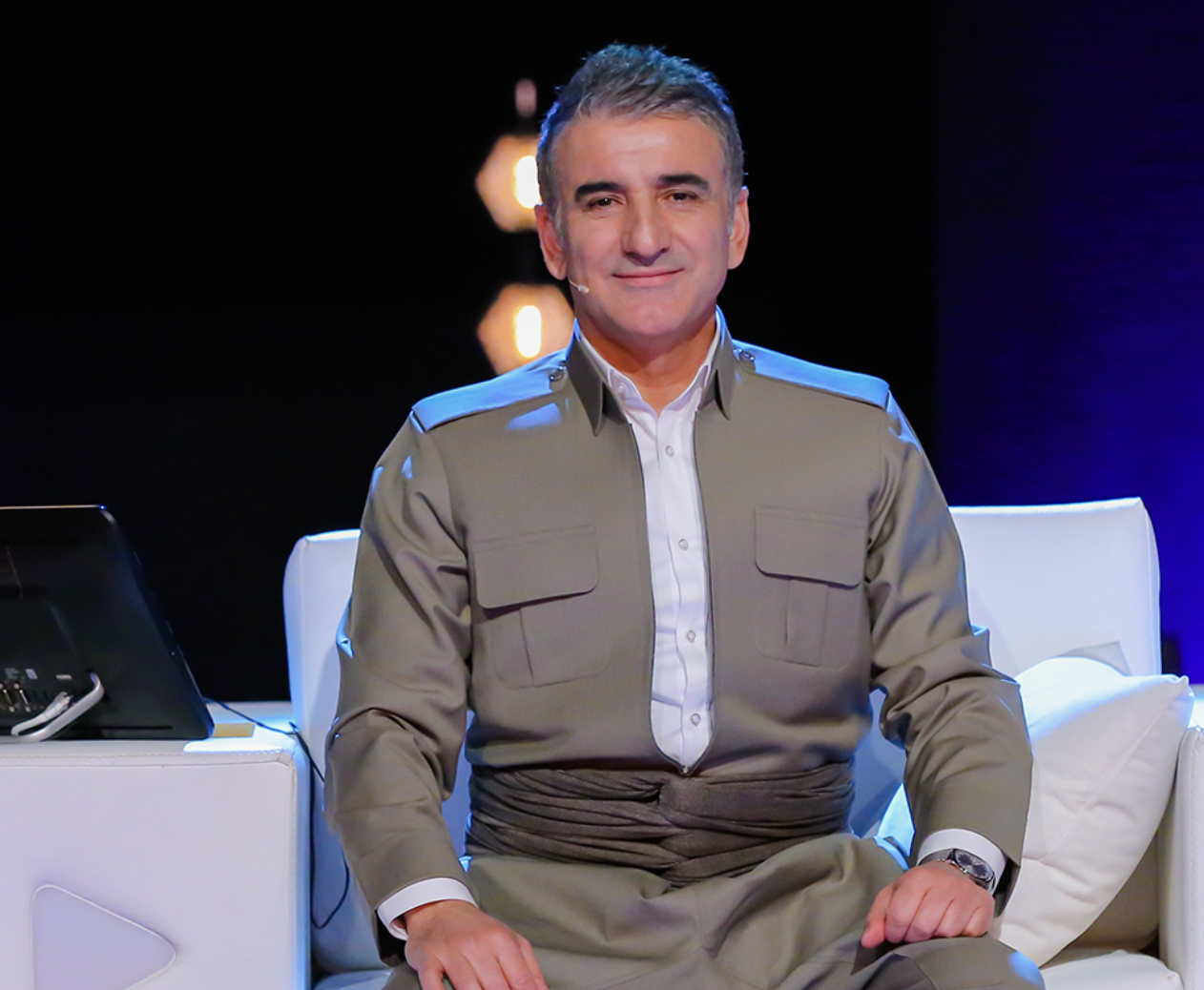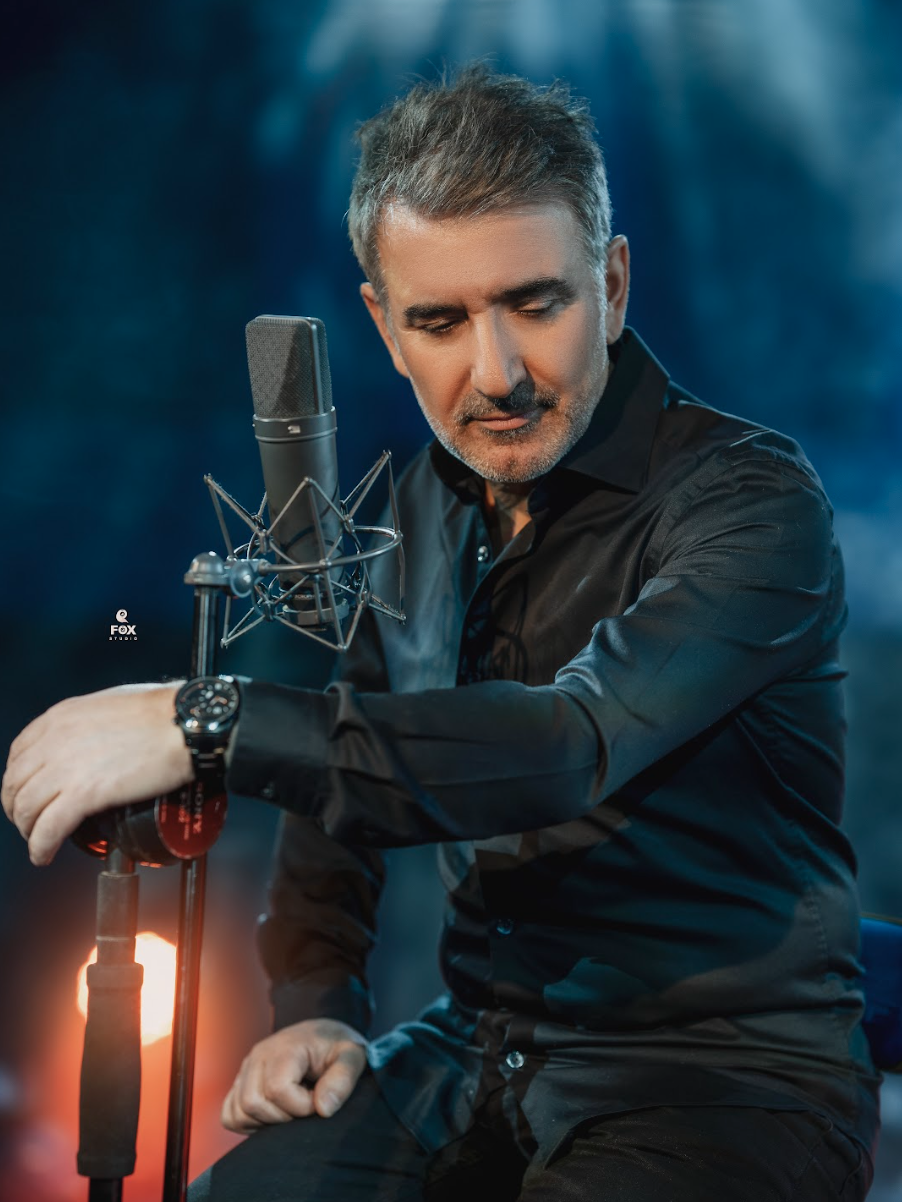In a long journey filled with artistic and political struggle, the Kurdish artist Hassan Sharif has achieved many milestones that formed his artistic career, some of which were related to fighting for the cause of his country and people.
Together with his passionate voice and his dedication to his culture, Sharif blends the melodies of the tanbur with the echoes of the mountains. Starting in 1987, he has served on the frontline of the Kurdish cause, fighting with his vocal cords and musical instrument in the ranks of the peshmerga. In a sense, his artistic journey has been inseparable from his time spent in the mountains defending the honor and dignity of his people.
In an interview conducted by writer Jan Dost for the magazine Kurdistan Chronicle, Sharif related the precise details of his life, from childhood to the climax of his artistic career in the diaspora in Europe. Sharif revealed the influences that helped turn his musical voice into a voice for his homeland. He also touched upon his hope for freedom, his concern for his people, and his dream of returning to embrace his homeland, Kurdistan.
Singing linked to struggle
Sharif rose to fame by writing songs that draw from Kurdish literature, including classic and contemporary poetry. He begins the interview by talking about the “golden period” of his life, when his passion for his homeland and the persecution practiced by the former regime toward his people led him to join the peshmerga in 1987.
Propelled by the spirit of the Gulan Revolution sweeping through Kurdistan, he began to perform patriotic songs that aroused the enthusiasm of the Kurdish people. He did not carry a weapon into battle, but the tanbur was his constant companion. As part of the first branch of the Kurdistan Democratic Party, he and his comrades founded the Peshraw Band, which produced songs of struggle and hope despite limited resources. Sharif recounts how that period, despite its harshness, was full of freedom and solidarity among the ranks of the Kurdish people under the umbrella of the National Democratic Front, known in Kurdish as the JUD.
Singing is linked to struggle, says Sharif, making the art a means of documenting the suffering of his people. He believes that singing is not just entertainment, but rather an essential part of Kurdish identity and an echo of the ongoing struggle of the Kurdish people. To him it tells the story of a nation that has suffered greatly from injustice and oppression. He also believes singing was and still is a noble activity that expresses the aspirations of the Kurds for freedom and dignity.
Sharif recalls when he discovered his passion for music as a child. Rhythm had been in his heart since he was quite young. He was greatly influenced by his family, many of whom were skilled singers – especially his mother, who had a tender voice that resembled Miryam Khan’s. As a child, he used to make basic musical instruments himself and try to imitate the melodies he heard at local popular celebrations and weddings.
“Kurdish singing is like a colorful carpet, with many patterns and styles. This diversity is part of its beauty,” he explains. “I have always tried to perform different types of songs, including Sufi songs, but in my own style,” he explains. “I think it is important to preserve old songs, such as the classical songs written by Kurdish poets such as Feqiye Teyran and Melaye Ciziri.”
Sharif says that the goal is to attract young people to listen to classical poets and believes that this diversity of songs gives him a special pleasure; “our Kurdish singing art is like a colorful mosaic.”

Between Europe and Kurdistan
After his peshmerga days, Sharif found a haven in Europe that allowed him to develop his artistic experience. He reiterates that Western democracy has taught him a lot, including the value of human freedom and the significance of the environment. He describes Sweden as his second home, where all human and national rights are preserved, and where he has been able to tour to perform his songs in many places.
However, he still longs for his homeland, and the dream of returning to Kurdistan is always in his heart. “The expatriate remains attached to his homeland and the fragrance of its soil,” Sharif says.
His career has allowed him to connect to the Kurdish diaspora through his concerts in various countries. However, he notes a clear difference between Europe and Kurdistan in terms of the atmosphere of concerts; in Kurdistan, where art is part of daily life, concerts are full of warmth and intimacy. He points to the recent increase in music festivals in the region, and hopes that this culture of listening will spread among the Kurds. Sharif believes that a small audience that listens well is better than a large audience that does not listen.

Art and politics
Sharif says that the relationship between art and politics should function as a “unifying factor.” He also points out that art should be a platform for the aspirations of the Kurdish people and an instrument for peace and building bridges between peoples. During his peshmerga days, Sharif explains, his music connected art and politics by “raising the morale of the peshmerga and telling the world about Kurdish struggle and fight for freedom.”
Hassan Sharif’s songs aim not only to chronicle the events of the resistance, but also to serve an expression of Kurdish identity. They relate the history of the Kurdish struggle, both before and after the formation of the Kurdistan Region. “If politics are necessary in art, then let it be of a humane and unifying nature and let us all work for the betterment of our people,” he says.
One of his most famous songs is Lalish, which describes the Kurdish Yezidi culture and its role in preserving the homeland. Written by the poet Adib Jalki, the song was widely admired in Kurdish society and won several awards. For instance, Sharif’s video clip Lalish won first place in Zakho in the field of directing and photography in 2006.
Sharif is especially fond of Bhutanese (Jazira) songs, including the songs of the Hakkari and Sarhad areas, because they have roots in his culture. For him, they carry the fragrance of the past and the richness of heritage. He states that he has been influenced by classical singers such as Maryam Khan and Mohammed Arif Jizrawi, in addition to revolutionary Kurdish singers such as Shivan Parwar and Mohammed Sheikho, who inspired him to write his political songs.
When asked about the song that represents his art the most, he replies, “it is difficult to pinpoint a specific song, but the album Av w Av, which includes a philosophical poem by the classical Kurdish poet Faqi Tayaran, is one of my favorite albums.”
As a peshmerga artist and singer, Sharif carries the message of his people through his songs. He remains one of the most prominent Kurdish performers and has served the Kurdish cause with his music, an example of an artist who has not separated himself from the concerns of his own people, but rather has made his art into a platform for all of their suffering and hopes.
Kurdistan Chronicle’s interview with him was not just a discussion of art, but rather a living testimony to the continuous struggle and determination of the Kurdish artist to communicate his message in the face of political and social challenges.
Jan Dost is a prolific Kurdish poet, writer and translator. He has published several novels and translated a number of Kurdish literary masterpieces.